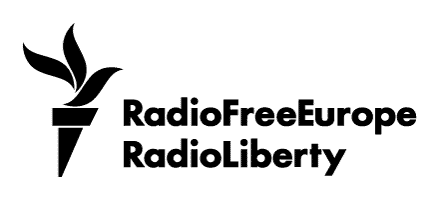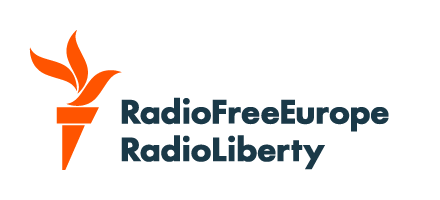Prague, 25 July 2001 (RFE/RL) -- U.S. National Security Adviser Condoleezza Rice delivered a stern message to Ukrainian leaders during a brief stopover today in the Ukrainian capital Kyiv.
She told President Leonid Kuchma and other officials that furthering bilateral ties would depend on political reforms, fair elections, and transparent probes into the recent killings of journalists.
"As I said to President Kuchma, to Mr. [Volodymyr] Lytvyn (head of the presidential administration), and to Prime Minister [Anatoly] Kinakh, it is important that these matters move forward in a way that builds confidence in Ukraine, because without that confidence we cannot have the kind of relations we would like to have with Ukraine."
Rice praised progress in economic reforms in Ukraine. But she emphasized that "economic and political reform must go hand in hand," emphasizing that Ukraine must have free and fair parliamentary elections next year. Washington, Rice added, views Ukraine as more than just a strategic partner:
"The United States does not see Ukraine as a bridge between Russia and Europe, [or] as a bridge between anyone. But the U.S. sees Ukraine as an independent and special and quite large power in Europe, with which we hope to have good relations based on common values."
In her meeting with Kuchma, Rice urged the Ukrainian leader to carry out a full probe into the killings of opposition journalist Heorhiy Gongadze and regional TV station director Ihor Alexandrov.
The murder of Gongadze last year prompted the opposition to stage protests demanding Kuchma's ouster. Protesters have accused Kuchma of playing a role in the murder, a charge Kuchma vehemently denies.
Rice also said Ukrainian officials reassured her that Kyiv will halt arms supplies to Macedonia. She said such arms sales do not help ongoing efforts to forge a political settlement between the Macedonian government and ethnic Albanian fighters.
"It is not that the Macedonian government should not have adequate means for its defense. But to rush arms into Macedonia at a time when they are in a political set of discussions -- we think it's not helpful," Rice said.
Macedonia in recent months purchased eight Ukrainian Mi-8 and Mi-24 helicopters along with four Su-25 aircraft.
Rice also discussed the Odessa-Brody oil pipeline. Upon its completion next year, the pipeline and the oil terminal in Pivdeny will start serving oil tankers. The Odessa-Brody oil pipeline is expected to become an efficient and relatively inexpensive way to transport Caspian oil to Western European countries.
Rice's trip to Ukraine comes shortly after a visit there by Chinese President Jiang Zemin, who secured Ukrainian support for China's opposition to U.S. missile defense plans. Some commentators have suggested Rice's visit was meant to counterbalance Jiang's trip. It also comes as the U.S. Congress debates cutting aid to Ukraine.
Fiona Hill, a fellow at the Brookings Institution in Washington, says Rice's somewhat stern message highlights the dilemma the United States faces in its dealings with the scandal-tainted Kuchma.
"With the scandals surrounding Kuchma, there's obviously a real imperative to try and distance the United States from President Kuchma, while at the same time continuing this engagement. So what I think we've seen in Condoleeza Rice's visit is underscoring for the Ukrainian government to take stronger measures to push forward with reform -- and for Kuchma obviously to clean up his act -- but at the same time trying to find some way of reassuring Ukraine, as a state, as a country, and the population that the relationship for the United States is still important."
Rice then traveled to Moscow to meet with counterpart Vladimir Rushailo, beginning a round of discussions with Russian leaders about the controversial U.S. missile defense plan.
Rice is scheduled to meet with President Vladimir Putin and Defense Minister Sergei Ivanov tomorrow.
She told President Leonid Kuchma and other officials that furthering bilateral ties would depend on political reforms, fair elections, and transparent probes into the recent killings of journalists.
"As I said to President Kuchma, to Mr. [Volodymyr] Lytvyn (head of the presidential administration), and to Prime Minister [Anatoly] Kinakh, it is important that these matters move forward in a way that builds confidence in Ukraine, because without that confidence we cannot have the kind of relations we would like to have with Ukraine."
Rice praised progress in economic reforms in Ukraine. But she emphasized that "economic and political reform must go hand in hand," emphasizing that Ukraine must have free and fair parliamentary elections next year. Washington, Rice added, views Ukraine as more than just a strategic partner:
"The United States does not see Ukraine as a bridge between Russia and Europe, [or] as a bridge between anyone. But the U.S. sees Ukraine as an independent and special and quite large power in Europe, with which we hope to have good relations based on common values."
In her meeting with Kuchma, Rice urged the Ukrainian leader to carry out a full probe into the killings of opposition journalist Heorhiy Gongadze and regional TV station director Ihor Alexandrov.
The murder of Gongadze last year prompted the opposition to stage protests demanding Kuchma's ouster. Protesters have accused Kuchma of playing a role in the murder, a charge Kuchma vehemently denies.
Rice also said Ukrainian officials reassured her that Kyiv will halt arms supplies to Macedonia. She said such arms sales do not help ongoing efforts to forge a political settlement between the Macedonian government and ethnic Albanian fighters.
"It is not that the Macedonian government should not have adequate means for its defense. But to rush arms into Macedonia at a time when they are in a political set of discussions -- we think it's not helpful," Rice said.
Macedonia in recent months purchased eight Ukrainian Mi-8 and Mi-24 helicopters along with four Su-25 aircraft.
Rice also discussed the Odessa-Brody oil pipeline. Upon its completion next year, the pipeline and the oil terminal in Pivdeny will start serving oil tankers. The Odessa-Brody oil pipeline is expected to become an efficient and relatively inexpensive way to transport Caspian oil to Western European countries.
Rice's trip to Ukraine comes shortly after a visit there by Chinese President Jiang Zemin, who secured Ukrainian support for China's opposition to U.S. missile defense plans. Some commentators have suggested Rice's visit was meant to counterbalance Jiang's trip. It also comes as the U.S. Congress debates cutting aid to Ukraine.
Fiona Hill, a fellow at the Brookings Institution in Washington, says Rice's somewhat stern message highlights the dilemma the United States faces in its dealings with the scandal-tainted Kuchma.
"With the scandals surrounding Kuchma, there's obviously a real imperative to try and distance the United States from President Kuchma, while at the same time continuing this engagement. So what I think we've seen in Condoleeza Rice's visit is underscoring for the Ukrainian government to take stronger measures to push forward with reform -- and for Kuchma obviously to clean up his act -- but at the same time trying to find some way of reassuring Ukraine, as a state, as a country, and the population that the relationship for the United States is still important."
Rice then traveled to Moscow to meet with counterpart Vladimir Rushailo, beginning a round of discussions with Russian leaders about the controversial U.S. missile defense plan.
Rice is scheduled to meet with President Vladimir Putin and Defense Minister Sergei Ivanov tomorrow.




